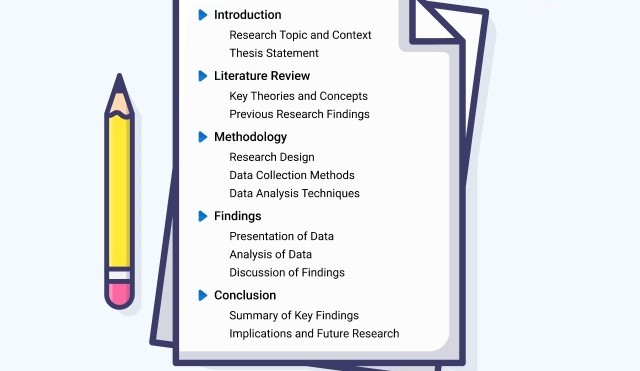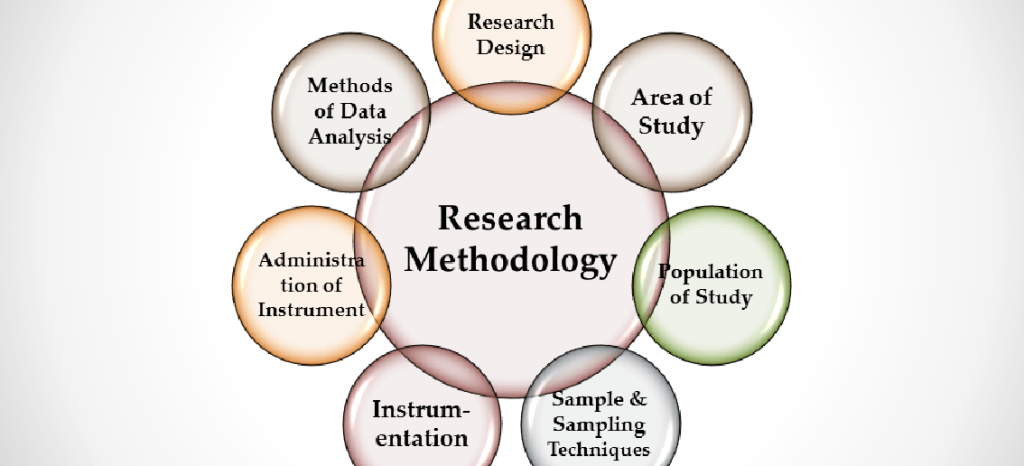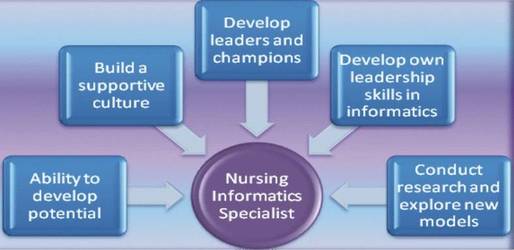
Table of Contents
The field of nursing informatics is a dynamic and rapidly evolving area that bridges the gap between healthcare and technology. This interdisciplinary field focuses on the effective use of information and technology to improve patient care, enhance nursing practice, and advance healthcare systems. As a burgeoning field, the need for rigorous research and impactful publications is paramount. Writing a stellar nursing informatics paper that resonates with the academic community requires a strategic approach, encompassing research design, writing style, and a deep understanding of the nuances of the field.
This guide serves as a comprehensive resource for aspiring and seasoned nursing informatics researchers alike, providing definitive guidelines for crafting high-quality nursing informatics papers. It delves into crucial aspects of the writing process, from topic selection and literature review to data analysis and manuscript preparation.
What is Nursing Informatics?
Nursing informatics is a specialized field that blends nursing science with information science and computer technology. It focuses on the effective use of information and technology to enhance patient care, improve nursing practice, and advance healthcare systems.
At its core, nursing informatics seeks to harness the power of data and technology to:
- Improve patient safety: By implementing electronic health records (EHRs), clinical decision support systems, and other technologies, nurses can reduce medical errors and ensure safer patient care.
- Enhance clinical decision-making: Nursing informatics tools provide nurses with access to real-time data, evidence-based guidelines, and patient-specific information, empowering them to make more informed clinical decisions.
- Optimize workflow and efficiency: By automating tasks, streamlining processes, and integrating data systems, nursing informatics can help nurses manage their workload more effectively and dedicate more time to patient care.
- Promote patient engagement: Mobile health applications, patient portals, and telehealth services can empower patients to take an active role in their care, improving communication, adherence to treatment plans, and overall health outcomes.
- Advance nursing research: Nursing informatics plays a crucial role in collecting, analyzing, and disseminating data to further our understanding of nursing practice and patient care.
The Role of Research and Publication:
To further the field of nursing informatics and ensure its continued development, robust research and impactful publications are essential. Nursing informatics papers provide a platform for disseminating new findings, sharing innovative approaches, and engaging in critical dialogue with the wider research community. These publications contribute to the advancement of nursing practice, policy, and technology, ultimately leading to better patient care.
The Future of Nursing Informatics:
As technology continues to evolve at a rapid pace, the field of nursing informatics is poised for significant growth. Emerging technologies like artificial intelligence, machine learning, and big data analytics hold immense potential for transforming nursing practice and improving patient care. By embracing innovation, conducting rigorous research, and publishing impactful nursing informatics papers, we can shape the future of healthcare and ensure that technology is used to deliver the highest quality care possible.
Steps for Crafting a Stellar Nursing Informatics Paper
1. Choosing a Compelling Topic for Your Nursing Informatics Paper:
The first step towards a stellar nursing informatics paper is selecting a topic that is both relevant and impactful. The topic should align with your research interests and address a significant gap in the current body of knowledge. Several factors can guide your topic selection:
- Clinical Practice Needs: Identify areas within nursing practice where technology can be leveraged to enhance efficiency, safety, or patient outcomes. For example, exploring the role of telehealth in managing chronic diseases or investigating the impact of mobile health applications on medication adherence.
- Emerging Technologies: Keep abreast of advancements in healthcare technology, such as artificial intelligence, machine learning, or wearable devices. Explore how these technologies can be integrated into nursing practice to improve patient care.
- Data Analytics and Big Data: The increasing availability of health data offers opportunities for analyzing trends and patterns to optimize healthcare delivery. Focus on how big data analytics can be used to predict patient risks, personalize care, or improve resource allocation.
- Policy and Regulatory Landscape: Explore the implications of new policies and regulations on nursing informatics. For example, analyze the impact of the Health Information Technology for Economic and Clinical Health (HITECH) Act on electronic health records (EHR) adoption in healthcare settings.
2. Conducting a Thorough Literature Review:
A robust literature review is the backbone of any nursing informatics paper, providing a comprehensive understanding of the research landscape surrounding your chosen topic. This section should:
- Identify Relevant Literature: Utilize electronic databases like PubMed, CINAHL, Nursing Papers and Scopus to search for relevant research articles, books, and other publications.
- Synthesize Existing Knowledge: Summarize the key findings, theories, and methodologies employed in previous studies related to your topic. Identify gaps in the current research and areas for further exploration.
- Develop a Theoretical Framework: Establish a theoretical basis for your research by drawing upon relevant theories from nursing informatics, computer science, or other related fields.
- Structure Your Review: Organize your literature review logically, either chronologically, thematically, or by research question. Use clear headings and subheadings to guide the reader through the information.

3. Designing a Rigorous Research Study:
Once you have a solid understanding of the existing literature, you need to design a research study that addresses your chosen research question and adds to the body of knowledge. Consider the following factors:
- Research Design: Select a research design appropriate for your research question and aims. Common research designs in nursing informatics papers include:
- Quantitative Studies: Employ statistical methods to analyze numerical data collected from surveys, experiments, or other quantifiable measures.
- Qualitative Studies: Use methods like interviews, focus groups, or observations to gather rich textual data and explore subjective experiences and perspectives.
- Mixed Methods: Combine quantitative and qualitative methods to provide a more comprehensive understanding of the research topic.
- Data Collection Methods: Select data collection methods that align with your research design and provide reliable and valid data. These might include:
- Surveys: Structured questionnaires used to gather data from a large sample of participants.
- Interviews: Structured or semi-structured conversations with individuals to gather in-depth insights.
- Observations: Systematic observation of behaviors, events, or processes to gather data.
- Secondary Data Analysis: Analyzing existing data sets, such as EHR data, to answer research questions.
- Ethical Considerations: Ensure your research study adheres to ethical principles, including informed consent, data privacy, and confidentiality. Obtain necessary approvals from institutional review boards (IRBs) before commencing your study.
4. Analyzing Your Data and Presenting the Findings:
After collecting your data, you must analyze it using appropriate statistical or qualitative methods, depending on your research design. This involves:
- Data Cleaning and Preparation: Ensure the data is accurate, complete, and organized for analysis.
- Statistical Analysis: Utilize statistical software packages, such as SPSS or R, to perform descriptive and inferential statistical analyses.
- Qualitative Data Analysis: Utilize techniques like thematic analysis, grounded theory, or content analysis to identify patterns and themes within the textual data.
- Presenting the Findings: Present your findings in a clear and concise manner, using tables, figures, and text to communicate the key results of your study. Highlight the significance of your findings and how they contribute to the field of nursing informatics.
5. Writing a Compelling Nursing Informatics Paper:
Writing a stellar nursing informatics paper involves crafting a well-structured, clear, and engaging manuscript. Pay close attention to the following aspects:

- Structure and Organization: Follow a standard manuscript structure, typically including:
- Abstract: A brief overview of your paper, including the research question, methods, findings, and implications.
- Introduction: Provide background information on your topic, state your research question, and outline the paper’s objectives.
- Literature Review: Summarize the key findings from previous research, identify gaps in the literature, and establish your study’s significance.
- Methods: Describe your research design, data collection methods, and data analysis techniques.
- Results: Present the findings of your study in a clear and concise manner, using tables, figures, and text.
- Discussion: Interpret your findings, relate them to the existing literature, and discuss their implications for nursing practice and research.
- Conclusion: Summarize the key findings of your paper and provide recommendations for future research.
- References: List all the sources cited in your paper using a consistent referencing style.
- Writing Style:
- Clarity and Conciseness: Write in a clear and concise style, using precise language and avoiding jargon.
- Active Voice: Use the active voice wherever possible to make your writing more direct and engaging.
- Objectivity: Maintain a neutral and objective tone, avoiding personal opinions or biases.
- Proofreading and Editing: Thoroughly proofread and edit your manuscript to ensure accuracy, clarity, and consistency.
6. Submitting and Publishing Your Nursing Informatics Paper:
Once your manuscript is complete, you can submit it to a peer-reviewed journal for publication. Choose a journal that aligns with your research topic and audience.
- Journal Selection: Identify journals that specialize in nursing informatics or related fields.
- Manuscript Preparation: Format your manuscript according to the journal’s specific guidelines, including font style, spacing, and referencing style.
- Peer Review Process: Submit your manuscript to the journal, and it will be reviewed by experts in the field. Be prepared to address any feedback received from the reviewers.
- Publication: If your manuscript is accepted for publication, it will be edited, formatted, and published in the journal.
7. Tips for Writing a Stellar Nursing Informatics Paper:
- Be Passionate and Enthusiastic: A genuine interest in your topic will shine through in your writing.
- Engage Your Audience: Write in a way that is both informative and engaging, using storytelling techniques to make your findings come alive.
- Stay Current with the Literature: Keep abreast of the latest advancements in the field by regularly reading journals, attending conferences, and engaging with experts.
- Collaborate with Others: Collaborating with other researchers can broaden your perspective, improve your manuscript, and enhance your research.
- Seek Feedback: Share your manuscript with colleagues, mentors, or editors for constructive criticism and feedback.
Common Mistakes in Nursing Informatics Papers and How to Avoid Them
Writing a strong nursing informatics paper requires careful planning and execution. Here are some common pitfalls to avoid:
1. Lack of Clear Focus and Research Question: A nursing informatics paper needs a well-defined research question or objective. Without a clear focus, the paper can become rambling and lack direction.
To avoid:
- Start with a clear research question. What specific issue within nursing informatics are you addressing?
- Develop a thesis statement. This should be a concise summary of your argument or the main point you are trying to make in your nursing informatics paper.
2. Insufficient Literature Review: A comprehensive literature review is crucial for any nursing informatics paper. It provides context and supports your arguments.
To avoid:
- Conduct a thorough literature search. Use relevant databases and search terms to find the most relevant and up-to-date research.
- Critically analyze the sources. Don’t just summarize; evaluate the strengths and weaknesses of the existing research and its implications for your nursing informatics paper.
3. Lack of Rigorous Methodology: If your nursing informatics paper involves a study or analysis, the methodology must be clearly explained and justified.
To avoid:
- Choose appropriate research methods. This could include quantitative, qualitative, or mixed methods approaches.
- Explain the rationale for your methodology. Why are these methods suitable for addressing your research question?
- Be transparent about data collection and analysis. Describe your data sources, sampling methods, and analytical techniques in detail.

4. Weak Data Interpretation and Discussion: Simply presenting data is not enough. You need to analyze and interpret the findings to connect them back to your research question.
To avoid:
- Draw clear conclusions based on the data. What are the key takeaways from your analysis?
- Discuss the implications of your findings. How do they contribute to the field of nursing informatics?
- Address limitations and future research directions. What are the limitations of your study, and what further research is needed?
5. Poor Writing Style and Presentation: A well-written nursing informatics paper is clear, concise, and grammatically correct.
To avoid:
- Use plain language and avoid jargon. Make sure your paper is understandable to a broad audience.
- Follow formatting guidelines. Adhere to the journal’s or conference’s style guide for citations, references, and formatting.
- Proofread carefully. Check for grammar, spelling, and punctuation errors.
By avoiding these common mistakes, you can write a strong and impactful nursing informatics paper that contributes to the field and advances knowledge.
Frequently Asked Questions about Nursing Informatics Papers?
Here are some frequently asked questions about writing a nursing informatics paper:
1. What topics are suitable for a nursing informatics paper?
- This field is vast! Topics can range from specific technologies like electronic health records (EHRs) or telehealth to broader issues like data privacy, patient safety, and the impact of informatics on nursing practice.
2. How do I find a good research question for my nursing informatics paper?
- Look for gaps in the literature: What areas of nursing informatics are under-researched or need further exploration?
- Consider your own clinical experiences: What challenges or opportunities have you encountered related to technology and healthcare?
- Seek guidance from faculty or mentors: They can provide valuable insights and help you refine your research question.
3. What kind of research methods are appropriate for a nursing informatics paper?
- Quantitative methods: Useful for examining numerical data, like analyzing patient outcomes related to specific technology interventions.
- Qualitative methods: Valuable for exploring the experiences and perspectives of nurses and patients regarding technology use.
- Mixed methods: Combining quantitative and qualitative approaches can offer a more comprehensive understanding of complex issues.
4. How do I structure my nursing informatics paper?
- Follow a standard format: This typically includes an introduction, literature review, methodology, results, discussion, and conclusion.
- Ensure logical flow: The sections should build upon each other and lead the reader to a clear understanding of your argument.
5. What resources are available to help me write a nursing informatics paper?
- Nursing informatics journals: Explore publications like the Journal of Nursing Informatics, the American Journal of Nursing Informatics, and the International Journal of Medical Informatics.
- Online databases: Utilize resources like PubMed, CINAHL, and the Cochrane Library to find relevant research articles.
- Professional organizations: The American Medical Informatics Association (AMIA) and the Healthcare Information and Management Systems Society (HIMSS) offer valuable resources and support.
6. How can I ensure my nursing informatics paper is impactful?
- Address a relevant and timely issue: Choose a topic that is important to the field of nursing informatics and has practical implications.
- Clearly articulate your findings: Make sure your conclusions are well-supported by the data and are presented in a clear and concise manner.
- Connect your research to real-world practice: Discuss how your findings can be applied to improve patient care, optimize nursing workflows, or enhance healthcare outcomes.
Remember that writing a strong nursing informatics paper requires thorough research, critical thinking, and effective communication. By addressing these frequently asked questions, you can set yourself up for success in this important field.

Writing a stellar nursing informatics paper is a challenging but rewarding endeavor. By following these definitive guidelines, you can enhance your research, communicate your findings effectively, and make a meaningful contribution to the field. Remember to be clear, concise, and impactful in your writing, always striving to advance the knowledge and practice of nursing informatics. Through your research and publications, you can help shape the future of healthcare and improve patient outcomes.
Get Professional Nursing Informatics Paper Writing Help
Are you looking for help with writing a nursing informatics paper? Then, look no further than PhD Nurse Writer. We offer professional nursing assignment help, covering topic suggestion, paper writing, proofreading, editing and plagiarism removal. Our writers can assist you with writing nursing essays, research papers, case studies and dissertations.





